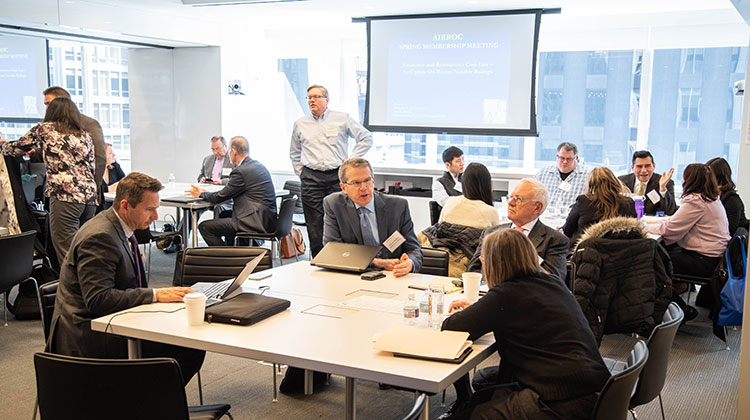Memorable Memories
It is a momentous year as IRLA (The Association of Run-Off Companies as it was originally known) was formed 20 years ago. IRLA began as a city-based group of like-minded (re)insurance, intermediary and professional service companies and professionals, and has become an association with the international breadth of membership to influence the way in which legacy business is transacted. In the past decade alone, the numbers on our database have almost tripled and Congress attendance has doubled since moving the event to Brighton six years ago.
There were times at the beginning of this decade when we thought the Association would wither on the vine but the rebranding and the market-wide increased focus on run-off has changed the landscape. The Association is seeing evidence of growth in the sector with growing numbers of members and increased attendance at our educational and networking events.
There was a record breaking turnout with more than 250 legacy professionals in attendance at the Congress in Brighton, England from May 14-16, 2018.
The global economic context in which we all work was set by the first speaker, bank economist, Neil Parker from NatWest Markets. From then onwards there was an emphasis on restructuring with voices from some of the global carriers and specialist consolidators giving us insight into their strategies in readiness for Brexit. The rationale behind Luxembourg, an EU location of choice, was explained as we were brought up to date with the attitudes of various regulators in relevant EU States. Day two had a specific slot on Brexit in which Jane Portas of PwC demonstrated how important collaboration with EU counterparts is in dealing with the hurdles presented by Brexit. We heard from a panel on the challenges and benefits of diversity in the workforce. We also heard from speakers on more granular areas such as claims trends and the comparison of U.S. and UK liability claims. Finally, we heard from the esoteric: e.g. doing business in the future and the increasing role of insurtech. On this last topic it was very helpful and timely to have the European General Data Protection Regulation, or GDPR, explained so that we could all appreciate why this dreaded legislation was needed in a world where scraping our personal data is the life source of the web-based economy. The deadline for compliance was the week after the Congress.
Against that background, how did the delegates find the event? What were the important takeaways? We asked a number of them and this is what they had to say:
On Insurtech…
“Whilst we all acknowledge that technology plays an important role in business and is increasingly growing in focus, people are the key to success.” Emma Lawton, BAI Claims Services “The legacy market cannot ignore Insurtech; we all need to embrace the opportunity to engage in this space. An example very relevant to our market, includes, systems and technology being a material driver for clients looking for a Transaction solution. The savings achieved as a result of a system solution being put in place, as part of an LPT or Legal Finality, can be a significant contributor to the economics of the deal.” Mark Hallam, Swiss Re
On Transatlantic Claims…
“In comparing and contrasting claim trends on UK employers’ liability and U.S. workers’ compensation, we asked the question “are current claims trends in the U.S. a barometer for what’s to come in the UK over the next few years.” The conclusion drawn was that it could be(!) but for each different claim type there is a range of cultural, custom and practice, legal and socio-economic factors that could influence this and there may be stark differences between the UK and U.S. relating to those factors. Each claim type needs to be assessed individually.” Jerry Perrins, Pro Global
For the full article, refer to page 18 in the Fall 2018 issue. https://www.airroc.org/assets/docs/matters/AIRROC_Matters_Fall_2018_Vol_14%20No_2.pdf
